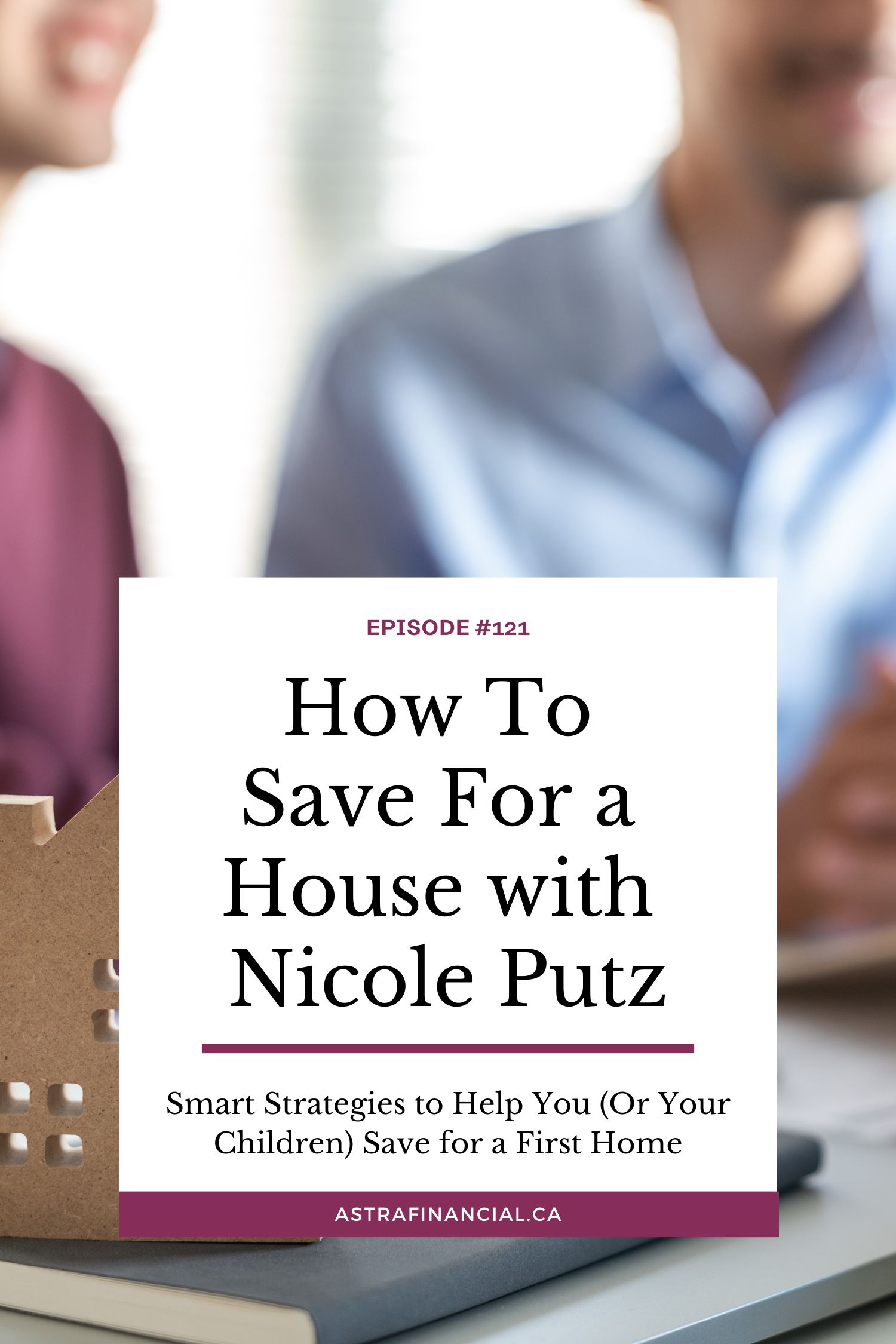How To Save For a House with Nicole Putz

Wondering how to save for your first home? In this episode, Nicole Putz and I discuss the first-time homeowner savings account and other practical tools to leverage when navigating today’s challenging real estate market.
Here’s what we’re chatting about:
- Embrace Long-Term Planning for Homeownership: The landscape of homeownership has shifted significantly. Instead of thinking about a starter home, it’s essential to focus on long-term financial planning. Begin by setting realistic goals and timelines, understanding that purchasing a home may happen later in life, often in one’s 30s, after accumulating more savings.
- Utilize the First-Time Homebuyer Savings Account: The first-time homeowner savings account is a powerful tool designed to help you save efficiently for a down payment. Contributions to this account are tax-deductible, similar to an RRSP, and offer tax-free growth on investments. If you don’t use the funds to buy a home within 15 years, you can transfer them to your RRSP, ensuring your savings remain beneficial.
- Consider Parental Assistance and Legacy Planning: Parents can play a crucial role in helping their adult children purchase a home. By reallocating funds from education savings plans (RESPs) to the first-time homebuyer savings account once children turn 18, parents can provide a significant financial boost. This strategy not only helps young adults enter the housing market but also aligns with long-term legacy planning, allowing parents to witness their children’s success and stability.
Show Notes: How To Save For a House with Nicole Putz
Welcome back to “The Heart of Your Money.” This is episode 121. Today, I’m thrilled to introduce one of my favorite people and a fellow certified financial planner, Nicole Putz. In this episode, Nicole and I delve into strategies geared towards helping our adult children save for their first home. We explore various options and discuss the new first home tax savings account. Whether you’re a parent looking to support your child’s financial journey or someone dreaming of buying your first home, this episode is packed with valuable information you won’t want to miss. Let’s get started.
Zena: Hello, Nicole. Thanks for joining me today.
Nicole: Thanks for having me. Always happy to be here.
Zena: So, we were talking just before I hit record about affordability and housing. I had pulled up an article about young people simply not being able to afford homeownership anymore, especially in bigger cities like Vancouver and Toronto. There’s even financial planning for never owning a home now. Here in Saskatchewan, it’s more affordable, but are you still seeing people having to plan a lot more to get in? How are people handling that?
Nicole: It is harder. Personally, my sister and her boyfriend are currently trying to find a house. Back in the day, there was this concept of a starter home, just to get your foot into the real estate market. Now, the shift is more about long-term planning. We’re not looking at $50,000 homes; we’re looking at $400,000 to $500,000 starter homes. I don’t even know if it’s really considered a starter home anymore. So, the thought process is changing. Most of my clients aren’t even considering buying until they’re in their thirties. They’ve definitely accumulated a bit more by then.
Zena: It takes pre-thought. My first house was just $300 a month for the mortgage, and the house itself was about $40,000. Ian’s income was $24,000 for the year. Now, we’re talking about $400,000 to $500,000 mortgages. It does take some planning. I think people are coming in later.
Nicole: I work mostly with clients in their late 20s to 40s. Even clients in their late 20s who have buying a house as a priority know the market and understand they need to plan. They realize they might have to save a bit longer and buy later to get the house they want. It’s no longer about stepping stones but saving more and getting into what they want.
Zena: Exactly. I’m seeing retired clients with adult children trying to save for houses. Middle-class families with great jobs are now looking at what buckets they can pull from to give their kids a boost for the down payment. It’s changing our planning perspective to ask if helping their children buy a house is a priority. Many young people aren’t expecting help, but their parents are seeing how hard it is to get into the market and want to assist.
Nicole: That’s right. Clients aren’t expecting a payout from mom and dad, but some parents want to help their kids get into the market. There’s also a shift in legacy planning. Some parents are considering gifting money to their children now so they can enjoy it and use it to buy a home.
Zena: Exactly. My daughters are looking at rent versus owning, and in some cases, owning is almost even with rent. But they need the down payment. One of the new programs is the first-time homeowner savings account, which offers a tax break.
Nicole: Yes, that’s amazing. You can deduct what you put into it off your taxes and carry it forward. It’s like an RRSP. If you’re just out of university and not making much, you can use the tax break when it’s more beneficial.
Zena: Right. It’s like an RRSP. You get tax-free growth. It’s a great way to save for a house. The money grows tax-free, and there’s a 15-year limit to use it for a house, which is a long time for your money to grow.
Nicole: Exactly. You can put investments inside the shelter. Even if you don’t get the tax savings right away, you can invest for good growth. When you’re ready to buy, you get both the tax savings and the investment growth.
Zena: I love the idea of parents helping their adult children. You can stop saving in an RESP and start saving in the first-time home savings account when they turn 18. It’s designated for a house, so you know it will be used wisely.
Nicole: Totally. It’s a game-changer for planning. Parents can help their kids save for a house, giving them a head start. It’s a great tool for financial planning.
Zena: And if you don’t buy a home, you can roll it into your RRSP, so you’re not at a loss.
Nicole: Yes, it’s a great option. Five stars for this program.
Zena: Thanks for joining us, Nicole. We’ll have you back soon.




